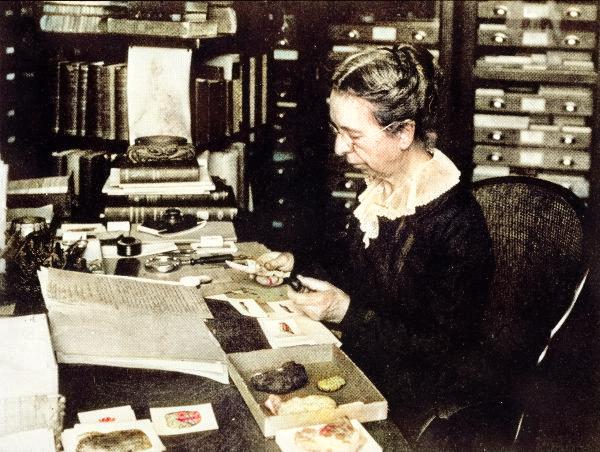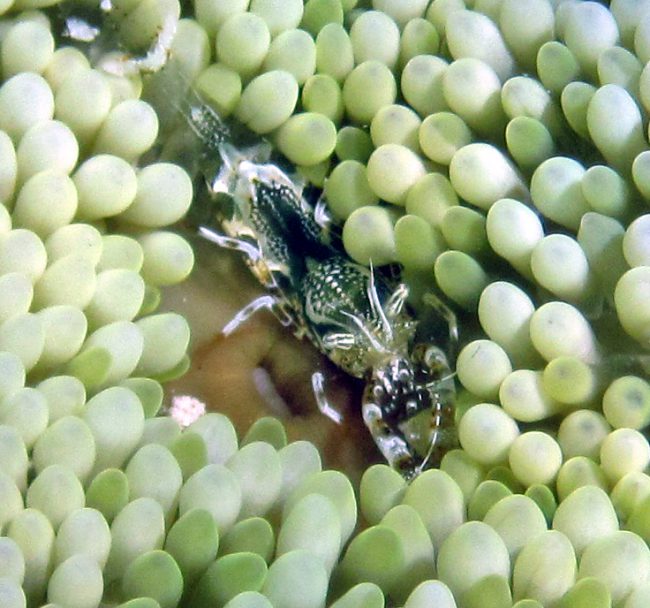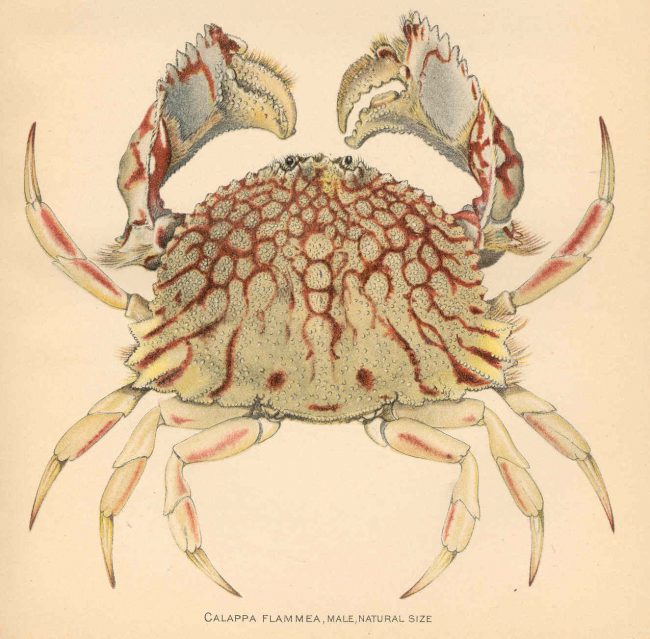
Mary Jane Rathbun (1860-1943)
On June 11, 1860, American zoologist Mary Jane Rathbun was born. Rathbun established the basic taxonomic information on Crustacea. For many years she was the Smithsonian’s complete department of marine invertebrates where she studied, cataloged, and preserved specimens. Through her basic studies and published works, she fixed the nomenclature of Crustacea and was the recognized, and the much sought after, authority in zoology and carcinology.
A Self-taught Zoologist
Mary Jane Rathbun was born as the youngest among 5 siblings in Buffalo, New York. Her father, Charles Rathbun – the lineal descendant of enterprising and accomplished stone masons who emigrated from England early in the seventeenth century – succeeded to the part ownership and active operation of several productive quarries. Her mother, Jane Furey, of Irish ancestry, died when Mary Jane was but a year old. Mary Jane Rathbun was a self-taught zoologist and it all started when her brother Richard worked as a scientific assistant to Addison Emery Verrill along with Verrill’s chief assistant, the carcinologist Sidney Irving Smith. In 1881, she accompanied Richard to Woods Hole, Massachusetts where she saw the ocean for the first time. There, she helped to sort and record Sidney Smith’s specimens. For about three years, she volunteered for her brother before she was granted a clerkship by Spencer Fullerton Baird at the Smithsonian Institution. From 1886 on, she worked as record keeper and cataloger in the National Museum’s then Department of Marine Invertebrates.[4]
A Record Keeper and Cataloguer
For years she worked virtually alone except for an occasional temporary assistant, as the Museum’s limited budget did not permit any permanent additions to the invertebrate staff. After 28 years of work at the museum, Rathbun was promoted to assistant curator in charge of the Division of Crustacea. In 1916, she was given an honorary master’s degree by the University of Pittsburgh. One year later, she qualified for a Ph.D. at George Washington University with a study on marine crabs.

Periclimenes rathbunae is a species of shrimp in the family Palaemonidae, also known as the sun anemone shrimp.
Freshwater Crabs and more
In 1891, Mary Jane Rathbun published her first scientific work together with James Everard Benedict on the genus Panopeus (“The Genus Panopeus”, 1891). Probably her most influential work was Les crabes d’eau douce (“Freshwater crabs“). It was published in three volumes in 1904–1906. In the course of a 14-year period beginning with the Panopeus paper (1891) up to and including the year of publication of the first part of “Les crabes d’eau douce” (1904), Rathbun published a wide range of studies, 47 in number. Among these were 4 of purely nomenclatorial interest; 3 still much soughtafter faunal papers: “Brachyura and Macrura of Porto Rico” (1901), “Japanese 286 Stalk-eyed Crustaceans” (1902), and the “Decapod Crustaceans of the Northwest Coast of North America” (1904); and 8 less comprehensive papers concerned with crabs of the western Indian Ocean (1894), Africa (1894, 1897, 1900), Costa Rica (1896), Galapagos Islands (1.902 ), Hawaii (1.902), and the Maldive Islands (1902). [4] In total, Rathbun co-wrote 166 papers, describing 1147 new species and subspecies. Although no more than 4 ft 6 in (1.37 m) tall, Mary Rathbun had strong features, and possessed a dry sense of humor.

Rathbun, Mary J. (1902) Brachyura and Macrura of Porto Rico, Bulletin of the United States Fish Commission, v.20, pt.2, for 1900, Washington, DC: Government Printing Office
Mary Jane Rathbun died in Washington, D.C., on April 4, 1943, at the age of 82.
Jeffrey B. Graham, Armed and Armored: The Amazing Evolutionary Story of Crustaceans, [7]
References and Further Reading:
- [1] Mary J. Rathbun at Early Women in Science
- [2] Mary J. Rathbun at Britannica Online
- [3] Mary J. Rathbun Biography at Encyclopedia
- [4] Waldo L. Schmitt (1973): Mary J. Rathbun 1860-1943
- [5] Mary Jane Rathbun Papers, 1886-1938 and undated from the Smithsonian Institution Archives
- [6] Mary Jane Rathbun at Wikidata
- [7] Jeffrey B. Graham, Armed and Armored: The Amazing Evolutionary Story of Crustaceans, University of California Television (UCTV) @ youtube
- [8] “Rathbun, Mary Jane (1860-1943), invertebrate zoologist | American National Biography”.
- [9] Hans G. Hansson. “Dr. Mary Jane Rathbun”. Biographical Etymology of Marine Organism Names. Göteborgs Universitet.
- [10] Timeline of Women Zoologists, via DBpedia and Wikidata





